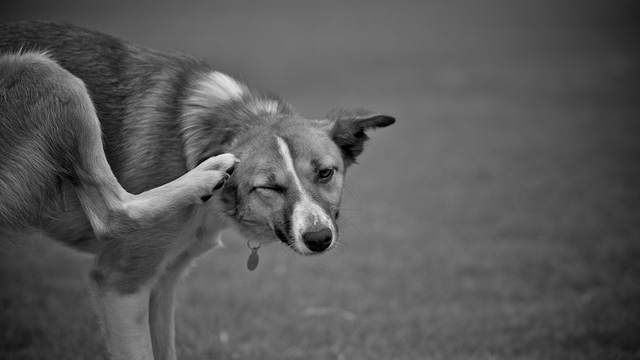Nearly a quarter of UK households own a dog. Cat lovers aren’t far behind – 19% of homes have at least one moggy prowling around. There’s no denying we are a nation of animal lovers. However, the beloved family pet can sometimes bring home some unwanted guests.
Fleas are a common problem in Sussex – even well-groomed cats and dogs living in an immaculate home can pick up the little blighters. One female can lay up to 50 eggs a day, meaning it’s not long before pet dog starts to feel itchy if a few fleas take up residence in their fur.
Fleas aren’t called pests without good reason. As well as being very uncomfortable to both you and your pooch, they can cause serious problems in young animals due to blood loss. For humans, fleas aren’t fatal but they can pose a threat if you’re allergic. Infants are also at risk from irritating bites if they’re playing on the floor.
It’s estimated that only 5% of flea eggs, larvae and pupae actually live on your pet. The other 95% can be found on beds, rugs, carpets and sofas. Sounds pretty grim doesn’t it? However, this statistic demonstrates how important it is to treat your home as well as your pet if you have a flea problem.
Thankfully, flea infestations are simple to treat and usually require only one visit. At Sussex Environmental Pest Solutions, we use residual insecticide and insect growth regulators to stop these pesky parasites taking over your home. You can find out more information about the problems fleas pose on our flea control page.
As well as calling us, you can save yourself from annoying, itchy bites by doing the following:
- Speak to a vet about the best treatments to use on your pet. Some treatments that are safe on dogs are toxic to cats so seek professional advice first
- Clean your animal’s bedding regularly and vacuum rooms thoroughly to destroy both adult fleas and their eggs
- Empty your vacuum cleaner and throw out the debris to stop eggs and larvae from developing
To discuss any flea problems, please call us on 01273 775941.

